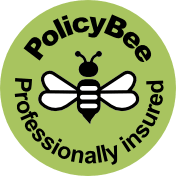The use of blogs for traffic generation
Blogs Attract More Search Engine Traffic
Your favorite thing about having a blog may soon be this – they naturally attract search engine traffic. Blogs already have optimized site architecture. Most are set up with a clear navigation, where every page is set up to link back to the other main pages. They also have the inherent potential to be well-linked.
Retiarius Internet Design have been successfully using blogs to generate sustained traffic to clients sites (e.g. for a French villa holiday company ) and by installing a blog on a subdomain of your domain you automatically get some cross-site linking. The effective use of blogs generates ‘link bait’ for other blog owners to want to link to you.
Blog Directories and Site Submission
If you haven’t already submitted to blog directories, you are missing out on some great one-way links. Many of the top directories can be found on Robin Good’s Top 55 list. But before you head over there and start submitting, you should know a little about how to optimize your blog. Then your new listings can help your site get the best keyword placement in the major search engines.
Tip One: Blogs and SEO – Keywords
You have a choice. You can target a general high traffic keyword you have little chance of ranking well for and get barely any traffic. Or you can shoot for a keyword that gets a moderate level of targeted traffic resulting in more subscribers and sales. I like to call this a “lucrative keywordâ€. Whatever you call them, here’s the most important thing: They may not get you the most traffic, but they often bring the most profit.
More Web Site Traffic and More Sales? Not Always
You may be surprised to learn that there isn’t always a correlation between high traffic and high sales. Many of the most profitable sites in the world get moderate traffic because their lucrative keywords result in a much higher ratio of visitors to buyers.
Length of Search Query is a Factor
A recent article in Information Week stated that the highest conversion rates from search engine traffic comes from people who do four word queries. The great thing about your blog is that it can get so well-indexed that you have the potential to show up for any number of four word phrases that are relevant to your industry.
Target Your Blog for More Traffic and Sales
It isn’t just the four word phrases that get converting traffic – there are two and three word phrases that can bring you traffic and sales. Targeting your blog discussion to a two or three word phrase that has a high yield of traffic, and yet has little competition, is not a dream of past Internet days. Another recent study revealed that surprisingly high percentages of search engine queries debuted as late as 2004. As long as there are new developments, new products, services and trends, you’ll never have a shortage of these terms if you learn how to discover them.

